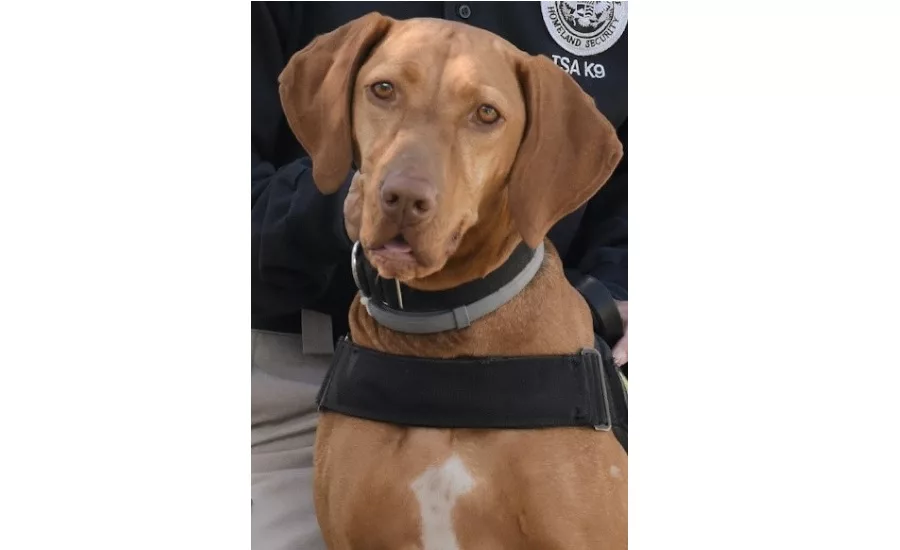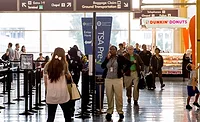TSA announces "cutest K9" winner

The Transportation Security Administration (TSA) announced that Kajla, a five-year-old Vizsla and explosive detection canine who works at Daniel K. Inouye International Airport (HNL) in Honolulu, Hawaii, was voted the winner of the 2020 TSA’s Cutest Canine Contest.
Last week, TSA held a three-day nationwide social media contest on Instagram, Twitter, and Facebook and encouraged members of the public to vote for the agency’s “cutest canine.” Once all the votes were tallied, it was Kajla who received the most votes. The contest was held in anticipation and recognition of National Dog Day, which is today.
This year’s winner was one of four TSA canine candidates that also included Djanni from Phoenix Sky Harbor International Airport; Ron from Oakland International Airport; and Lexa-Alexey from Dallas-Fort Worth International Airport. The canines were nominated by TSA handlers from airports around the country and voted on by dog lovers nationwide.
Kajla is a passenger screening canine (PSC) who works with her handler Penny at HNL. Together, they screen travelers and their belongings for explosives at the security checkpoint as an added layer of security. The team has worked together for almost four years at HNL. Kajla is a social canine who enjoys greeting travelers with hearty tail wags, shiny eyes and broad smiles. Not only is she cute, but Kajla ranked first in the nation amongst TSA PSCs for highest daily average time worked, time spent training and screening at the security checkpoint.
Beyond working with federal, state and local partners, Kajla has also worked with the Federal Bureau of Investigation; U.S. Marshals Service; Bureau of Alcohol, Tobacco, Firearms and Explosives; as well as State of Hawaii Department of Public Safety and the Honolulu Police Department.
Passengers departing airports across the country can expect to see PSC teams working around travelers. The teams capably navigate among large groups of people to pinpoint the source of an explosive odor, even if the source is mobile and often without the source being aware it is being tracked. A PSC handler is trained to read its dog’s change of behavior when it indicates an explosive scent has been detected.
If a dog alerts its handler to the presence of explosive odor, TSA follows an established procedure to resolve the alarm. The use of these highly-trained canines is an effective tool in deterring and detecting the introduction of explosive devices into the nation’s transportation systems.
Because explosives are known to be the greatest threat to the aviation system, TSA’s working canines are regularly tested to ensure they maintain a high standard of operational effectiveness. This continual training allows for all teams to be a reliable resource in detecting an explosive threat, maintaining proper acclimation within the airport, and mitigating potential distractions in a busy transportation environment.
Currently, TSA has trained more than 1,000 PSC teams that work primarily at airports across the country. These teams are also trained to work in non-aviation transportation venues. While PSCs are sociable, they are working dogs and they should not be petted or fed by anyone except their handlers.
Looking for a reprint of this article?
From high-res PDFs to custom plaques, order your copy today!





